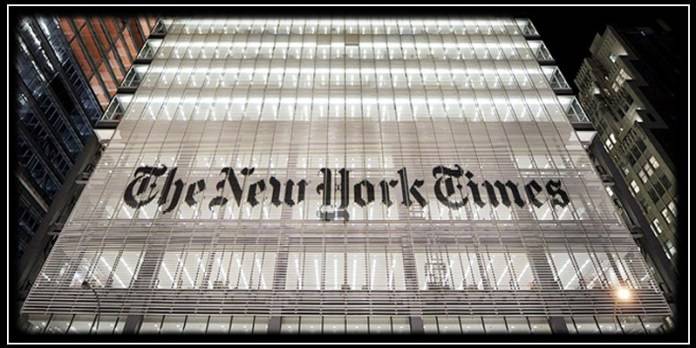Human rights advocates are criticizing the United States for ignoring India’s rights abuses against Muslims and in occupied Kashmir as Washington and New Delhi forge stronger diplomatic and military ties aimed at neutralizing China’s growing influence in the region, according to a media report.
Citing officials, The New York Times said in a dispatch that as Washington and Delhi were strengthening ties,India’s recent border dispute with China has “accelerated relations between the countries”.
“Both the U.S. and India have recognized the importance of the other,” Nisha Biswal, a former American US assistant secretary of state for South and Central Asian affairs, was quoted as saying. Ms. Biswal, who is of Indian origin, said New Delhi was “looking for like-minded strategic and security partners”, especially in the wake of the India-China conflict in June.
“But”, the Times said, “social justice advocates worry that the Trump administration is turning a blind eye to India’s rights abuses against Muslims under Prime Minister Narendra Modi, prioritizing military and geopolitical alliances over all else.”
“They are warming relations under the same banner,” Wasim Dar, who campaigns for rights of Kashmiri people, told the New York Times. “They’re prioritizing military, or hegemony, over any kind of human rights or political freedom,” he added.
Noting that the United States and India have increasingly soured on China in recent years, the newspaper said, “A looming presidential election in the United States — and President (Donald) Trump’s eagerness to paint China as a rival — has caused Washington to sharply shift its policies toward Beijing.
In this context, it said, the Trump administration has taken a series of economic, political and diplomatic actions against China.
In June, Indian and Chinese troops clashed along a their disputed border in Ladakh, killing 20 Indian soldiers.
The United States and India have not yet signed a formal alliance, but the Times said that the recent Sino-Indian conflict was helping change that.
Of most interest, according to experts cited by the Times, is whether the border dispute will move India closer into a regional partnership with the United States, Japan and Australia — known as the Quadrilateral Security Dialogue, or “Quad.”
In the past, the Times said, India was hesitant to fully engage in the partnership, but now it is more willing to participate in a coalition that is seen by most as anti-China.
Modi signaled in his call with Japan’s new prime minister, Yoshihide Suga, that the two countries must work together for a “free, open and inclusive Indo-Pacific region,” echoing language used by the Quad and United States.
India’s Minister of External Affairs, Subrahmanyam Jaishankar, has also become increasingly vocal about the partnership, experts say, and will meet in Tokyo on Tuesday with Secretary of State Mike Pompeo and the foreign ministers of Japan and Australia for the Quad’s second official meeting.
India and the United States are also looking to increase military cooperation, the Times said. Over the years, India has accelerated its weapons purchases from the United States, and is cleared to buy upward of $20 billion in American arms by the end of 2020, a sharp increase from nearly zero in 2008, according to the State Department.
More recently, India has sought to fast-track a purchase 30 MQ-9B SkyGuardian drones from General Atomics, in a deal that is likely to exceed $3 billion, according to industry officials.
The drones could be deployed to India’s disputed border region with China and significantly expand its surveillance over the area, it said.
Diplomats are watching to see if India invites Australia, which has left the alliance but has now returned, to participate in a naval exercise it holds with Japan and the United States, the Times said, adding, “It would be another sign that India is taking the concept of the Quad seriously.”
“But despite the warming ties,” the report said, ” Trump and Modi, both conservatives, have not addressed human rights concerns.”
The Times said, “Mr. Modi, a Hindu nationalist, has been criticized heavily for actions that have disenfranchised Muslims in India. Last August, Modi revoked a special status for Kashmir that had granted it greater autonomy than other Indian states. After protests erupted over the measure, he clamped down with lockdowns and a suspension of phone and internet services.






